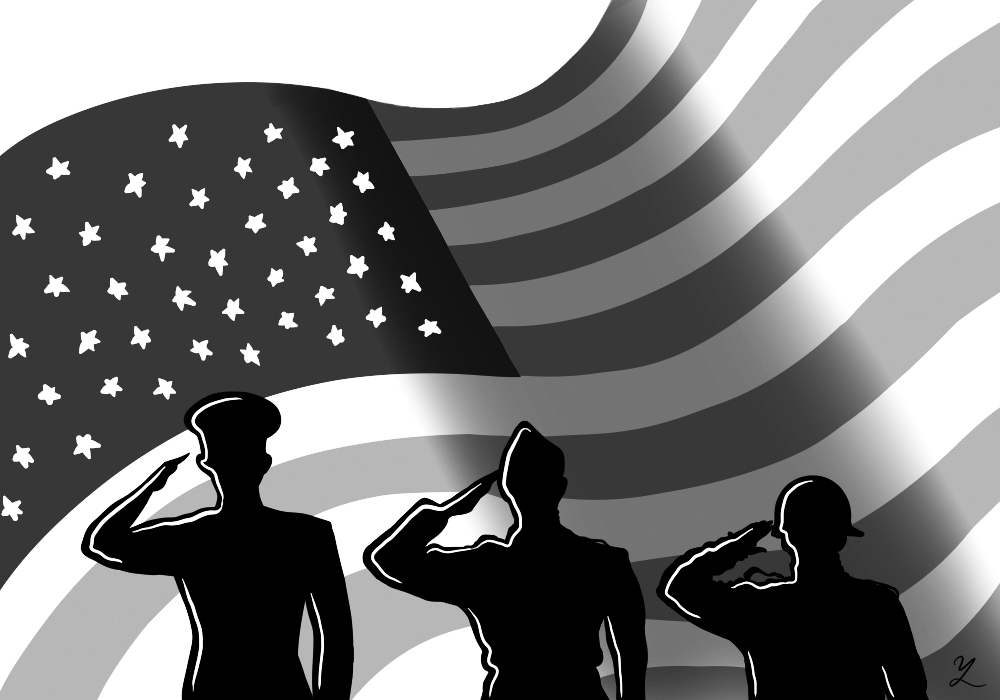
Last month, I attended a discussion at the Saybrook dining hall. The talk centered on the military-civilian disconnect and offered a forum for students, parents and people of all backgrounds to share their thoughts on the military’s relationship to the American public. As a veteran myself, I appreciated the opportunity to listen and share my thoughts.
One participant raised the idea that some people are conflicted about the military because it reminds them that threats exist — people don’t like to be made aware of violence. She proposed that, for some, seeing images of soldiers reminds them of war, which they’d rather not think about.
This idea remained with me after the discussion ended. Prior to matriculating, I had thought that my experiences in the military would add a unique perspective to my courses at Yale, but it turns out my courses at Yale have also added some perspective to my military experience.
One of my readings characterized the progression of European militaries in the 18th and 19th centuries from peasant and mercenary armies to professional militaries. As this advancement occurred, the wealth and security of Europe increased. The combination of a more prosperous society along with a disciplined military led the bourgeoisie to regard the military with derision and even contempt. For them, soldiers were a product of a bygone era, relics of a primitive age from which enlightened individuals could escape. It is difficult not to observe similar sentiments to society today.
While I was stationed in Europe, I had a conversation with two elderly Polish gentlemen. We eventually turned to the conflict in Crimea and the U.S. military presence in Europe. One man’s (paraphrased) observation stood out to me: “As you enjoy your stay in any charming European city, do not assume that its pleasantness is magically guaranteed to last. Some of these European states can go bad at a moment’s notice, as they’ve proven time and again. One can go from admiring the city square and enjoying the sights to having a boot placed on their head in a cold basement faster than you can say “fascism.” If we’re being honest, the American military has played a major role in maintaining peace in these societies.”
I had similar conversations with other citizens in Eastern Europe — people who have had their freedom and livelihoods threatened exhibit great appreciation for the American presence in Europe. In our comfortable lives we can easily forget the fragility of our freedoms. It is easy to slip into thinking that the classical liberal tenets of natural rights, equality and justice are the default. But a cursory examination of history shows that the ideals we strive to attain are not the norm. The freedoms and opportunities we have in this country, which thousands of immigrants routinely risk their lives to enter, exist only because of the courageous men and women who volunteer to defend it.
While we may think of the military as something separate from our experiences at Yale, the Beinecke memorial reminds us that Yale has historically had close ties with the military. From the American Revolution until the present day, many alumni have given their lives for our country, including 514 students in World War II. Following that war, Yale enrolled more than 8,000 returning veterans. During the Korean War, nearly half of Yale students were enrolled in ROTC. According to the Yale Veterans Association, there are roughly 10,000 Yale alumni who are veterans. The intertwined history of Yale and the military should spur us to reconsider how close we truly are to the armed services. We must remind ourselves of the sacrifices our service members have shouldered.
And so, on behalf of the Undergraduate Veterans Day Committee, I extend an invitation to all readers to join us on Wednesday, Nov. 11 at 10 a.m. on Cross Campus. Whether you have never given any thought to Veterans Day or come from a family with a military background, I encourage you to visit and recognize why this day is important to everyone, not just veterans.
Rob Henderson is an Eli Whitney student in Calhoun College. Contact him at robert.henderson@yale.edu .







